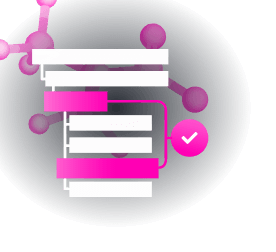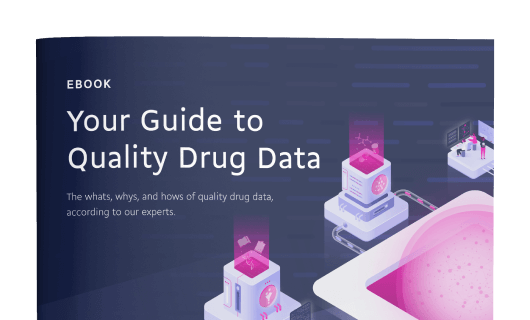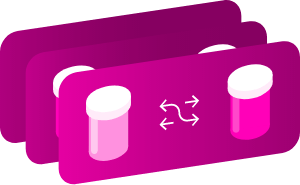Identification
- Generic Name
- Clove oil
- DrugBank Accession Number
- DB11338
- Background
Clove oil is obtained by extraction from the dried flower buds of the clove plant. Traditionally, it has been used as a flavouring spice in foods, or as a fragrance. It is also found in topical analgesics. Clove oil has shown to exert some antimicrobial activities. The antioxidant and antimicrobial activity of clove is higher than that of many fruits, vegetables, and other spices 2.
Clove is native of Indonesia but is now cultured in several parts of the world, including Brazil in the state of Bahia. This plant represents one of the richest source of phenolic compounds such as eugenol, eugenol acetate and gallic acid and has great potential for pharmaceutical, cosmetic, food and agricultural applications 2.
Interestingly, clove oil has been studied for its potential benefit in treating neuropathic pain, as well as vaginal candidiasis with promising results 4, 5.
The FDA categorizes clove oil as generally recognized as safe (GRAS) for use in dental cement or as a food additive 13.
- Type
- Biotech
- Groups
- Approved, Nutraceutical
- Synonyms
- Caryophylii floris aetheroleum
- Caryophyllus aromaticus bud oil
- Clove bud oil
- Clove volatile oil
- Ding xiang bud oil
- Eugenia aromatica bud oil
- Eugenia caryophyllata bud oil
- Eugenia caryophyllus (clove) bud oil
- Eugenia caryophyllus (clove) flower oil
- Nelken oel
- Syzygium aromaticum bud oil
- Syzygium aromaticum oil
- External IDs
- Fema no. 2323
Pharmacology
- Indication
Clove oil is primarily indicated in conditions like colic, flatulence, and toothache 9.
 Reduce drug development failure ratesBuild, train, & validate machine-learning modelswith evidence-based and structured datasets.Build, train, & validate predictive machine-learning models with structured datasets.
Reduce drug development failure ratesBuild, train, & validate machine-learning modelswith evidence-based and structured datasets.Build, train, & validate predictive machine-learning models with structured datasets.- Associated Conditions
Indication Type Indication Combined Product Details Approval Level Age Group Patient Characteristics Dose Form Used in combination to treat Mild pain Combination Product in combination with: Levomenthol (DB00825), Eucalyptus oil (DB11114) ••• ••• ••••• Used in combination for symptomatic treatment of Toothache Combination Product in combination with: Chlorobutanol (DB11386), Phenol (DB03255) ••• ••• •••••••• - Contraindications & Blackbox Warnings
 Prevent Adverse Drug Events TodayTap into our Clinical API for life-saving information on contraindications & blackbox warnings, population restrictions, harmful risks, & more.Avoid life-threatening adverse drug events with our Clinical API
Prevent Adverse Drug Events TodayTap into our Clinical API for life-saving information on contraindications & blackbox warnings, population restrictions, harmful risks, & more.Avoid life-threatening adverse drug events with our Clinical API- Pharmacodynamics
Clove (Eugenia caryophyllata Thunb. [Myrtaceae]) essential oil (CEO) has been demonstrated to possess antimicrobial, antifungal, antiviral, antioxidant, anti-inflammatory, anti-histamine, and anticancer properties. However, few studies have focused on its topical use 2, 10.
Clove essential oil, used as an antiseptic in oral infections, inhibits gram-negative and gram-positive bacteria as well as yeast 1.
- Mechanism of action
The chief constituent present in clove oil is the phenol "eugenol" which is present in amounts up to 85%. Clove oil acts as a germicide 9 to Escherichia coli, Staphylococcus aureus and Pseudomonas aeruginosa 1.
Clove oil is thought to inhibit prostaglandin synthesis, thereby reducing painful symptoms 6.
Eugenol, the main constituent of clove oil is purported to have anticancer action. In one study, eugenol-treated HL-60 cells showed features of apoptosis including DNA fragmentation and formation of DNA ladders in agarose gel electrophoresis. It was observed that eugenol transduced the apoptotic signal via reactive oxygen species (ROS) generation, inducing mitochondrial permeability transition (MPT), decreasing anti-apoptotic protein bcl-2 level, inducing cytochrome c release to the cytosol, and subsequent apoptotic cell death. When taken together, the study showed that ROS plays a critical role in eugenol-induced apoptosis in HL-60, and this is the first report on the mechanism of the anticancer effect of eugenol 7.
Target Actions Organism UVascular cell adhesion protein 1 antagonistHumans UC-X-C motif chemokine 10 Not Available Humans UCollagen alpha-1(I) chain Not Available Humans UGranulocyte-macrophage colony-stimulating factor receptor subunit alpha Not Available Humans - Absorption
Clove oil is rapidly absorbed through the skin and is used in patented systems for dermal drug delivery to enhance drug uptake from skin patch delivery systems 13.
- Volume of distribution
Not Available
- Protein binding
Not Available
- Metabolism
In the rat, 20-30% of eugenol is metabolized to homovanillic acid and 4-hydroxy-3-methoxymandelic acid 10.
In a pharmacokinetic study in man, 95% of the ingested eugenol dose was recovered in the urine, most of which (greater than 99%) consisted of phenolic conjugates; 50% of the conjugated metabolites were eugenol-glucuronide and sulfate. Other metabolic routes observed were the epoxide-diol pathway, synthesis of a thiophenol and of a substituted propionic acid, allylic oxidation, and migration of the double bond 8.
- Route of elimination
In a pharmacokinetic study, the metabolism of eugenol (the primary constituent of clove oil) was investigated in healthy male and female volunteers. It was quickly absorbed and metabolized after oral administration and was almost completely excreted in the urine within 24 hours of ingestion 8.
- Half-life
In a pharmacokinetic study, average half-life values of eugenol in plasma and blood were long (14.0 and 18.3 h, respectively), suggesting a potential accumulation of the drug following repeated administrations 4.
- Clearance
Not Available
- Adverse Effects
 Improve decision support & research outcomesWith structured adverse effects data, including: blackbox warnings, adverse reactions, warning & precautions, & incidence rates. View sample adverse effects data in our new Data Library!Improve decision support & research outcomes with our structured adverse effects data.
Improve decision support & research outcomesWith structured adverse effects data, including: blackbox warnings, adverse reactions, warning & precautions, & incidence rates. View sample adverse effects data in our new Data Library!Improve decision support & research outcomes with our structured adverse effects data.- Toxicity
Acute oral toxicity (LD50): 2650 mg/kg [Rat] MSDS.
Clove oil is considered safe in small quantities (< 1,500 ppm) as a food additive 13. The lethal oral dose is 3.75 g per kg body weight in humans 13.
Contact with skin or soft tissue may cause transient irritation, contact dermatitis, inflammation of the lips, and inflammation or ulceration of the mouth. The eugenol present in clove oil may act as an irritant to skin and mucous membranes; it may also cause hypersensitivity and is reported to inhibit prostaglandin synthesis. Patients may become sensitive to clove oil 10.
After oral administration of 5-10 ml of clove oil in children below 2 years of age, life-threatening conditions were observed. Adverse effects included coma, acidosis, a generalized seizure, disordered blood clotting, and acute liver damage 13.
Overdose may lead to CNS depression, urinary abnormalities, anion-gap acidosis, deterioration of liver function, coma, seizure and low blood glucose levels. Treatment should be supportive and symptomatic; there have been reports in the literature that N-acetylcysteine has been successfully used as an antidote 10.
There are no epidemiological studies of potential adverse human health effects related to exposure to clove leave oil or eugenol from any human exposure scenarios. Nor are there any studies of agricultural use, either in workers or those with bystander exposure or other applications. There are no occupational exposure standards for clove leaf oil or eugenol including OSHA PEL (Permissible Exposure Limit) or AGIHA TLVs (Threshold Limit Value) in air 13.
- Pathways
- Not Available
- Pharmacogenomic Effects/ADRs
- Not Available
Interactions
- Drug Interactions
- This information should not be interpreted without the help of a healthcare provider. If you believe you are experiencing an interaction, contact a healthcare provider immediately. The absence of an interaction does not necessarily mean no interactions exist.
Drug Interaction Integrate drug-drug
interactions in your softwareAbacavir Abacavir may decrease the excretion rate of Clove oil which could result in a higher serum level. Aceclofenac Aceclofenac may decrease the excretion rate of Clove oil which could result in a higher serum level. Acemetacin Acemetacin may decrease the excretion rate of Clove oil which could result in a higher serum level. Acetaminophen Acetaminophen may decrease the excretion rate of Clove oil which could result in a higher serum level. Acetazolamide Acetazolamide may increase the excretion rate of Clove oil which could result in a lower serum level and potentially a reduction in efficacy. - Food Interactions
- No interactions found.
Products
 Drug product information from 10+ global regionsOur datasets provide approved product information including:dosage, form, labeller, route of administration, and marketing period.Access drug product information from over 10 global regions.
Drug product information from 10+ global regionsOur datasets provide approved product information including:dosage, form, labeller, route of administration, and marketing period.Access drug product information from over 10 global regions.- Over the Counter Products
Name Dosage Strength Route Labeller Marketing Start Marketing End Region Image Clove Oil Liquid 100 % Dental Stanley Pharmaceuticals, A Division Of Vita Health Products Inc. 1965-12-31 2002-07-31 Canada Clove Oil Liquid Dental D.C. Labs Limited 1951-12-31 2003-07-11 Canada WILISAN CLOVE OIL PREPARATION Oil 87 % v/v Buccal CHONG PARK PHARMACEUTICAL SDN BHD 2020-09-08 2020-12-18 Malaysia - Mixture Products
Name Ingredients Dosage Route Labeller Marketing Start Marketing End Region Image Amol Clove oil (0.1 %) + Cinnamon oil (0.24 %) + Lavender oil (0.24 %) + Peppermint oil (1.963 %) Liquid Oral Amol Pharma Gmbh 1999-11-01 2010-03-09 Canada Arhtri Plus Clove oil (0.2 g/100g) + Eucalyptus oil (3 g/100g) + Menthol (2.5 g/100g) Spray Topical Multi Service 2022-06-07 Not applicable US Arhtri Plus Clove oil (0.2 g/100g) + Eucalyptus oil (3 g/100g) + Menthol (2.5 g/100g) Spray Topical Multi Service 2022-06-08 Not applicable US Arhtri Plus Clove oil (0.25 g/100g) + Eucalyptus oil (0.72 g/100g) + Menthol (2.5 g/100g) Spray Topical Distributions Ar?Mes D`espagne Enr 2014-10-30 Not applicable US Arhtri Plus Clove oil (0.2 g/100g) + Eucalyptus oil (3 g/100g) + Menthol (2.5 g/100g) Spray Topical Multi Service 2022-07-06 Not applicable US
Categories
- Drug Categories
- Classification
- Not classified
- Affected organisms
- Humans and other mammals
Chemical Identifiers
- UNII
- 578389D6D0
- CAS number
- 8000-34-8
References
- General References
- Nunez L, Aquino MD: Microbicide activity of clove essential oil (Eugenia caryophyllata). Braz J Microbiol. 2012 Oct;43(4):1255-60. doi: 10.1590/S1517-83822012000400003. Epub 2012 Jun 1. [Article]
- Cortes-Rojas DF, de Souza CR, Oliveira WP: Clove (Syzygium aromaticum): a precious spice. Asian Pac J Trop Biomed. 2014 Feb;4(2):90-6. doi: 10.1016/S2221-1691(14)60215-X. [Article]
- Han X, Parker TL: Anti-inflammatory activity of clove (Eugenia caryophyllata) essential oil in human dermal fibroblasts. Pharm Biol. 2017 Dec;55(1):1619-1622. doi: 10.1080/13880209.2017.1314513. [Article]
- Guenette SA, Ross A, Marier JF, Beaudry F, Vachon P: Pharmacokinetics of eugenol and its effects on thermal hypersensitivity in rats. Eur J Pharmacol. 2007 May 7;562(1-2):60-7. doi: 10.1016/j.ejphar.2007.01.044. Epub 2007 Feb 1. [Article]
- Ahmad N, Alam MK, Shehbaz A, Khan A, Mannan A, Hakim SR, Bisht D, Owais M: Antimicrobial activity of clove oil and its potential in the treatment of vaginal candidiasis. J Drug Target. 2005 Dec;13(10):555-61. doi: 10.1080/10611860500422958 . [Article]
- Pongprayoon U, Baeckstrom P, Jacobsson U, Lindstrom M, Bohlin L: Compounds inhibiting prostaglandin synthesis isolated from Ipomoea pes-caprae. Planta Med. 1991 Dec;57(6):515-8. doi: 10.1055/s-2006-960196. [Article]
- Yoo CB, Han KT, Cho KS, Ha J, Park HJ, Nam JH, Kil UH, Lee KT: Eugenol isolated from the essential oil of Eugenia caryophyllata induces a reactive oxygen species-mediated apoptosis in HL-60 human promyelocytic leukemia cells. Cancer Lett. 2005 Jul 8;225(1):41-52. doi: 10.1016/j.canlet.2004.11.018. Epub 2004 Dec 15. [Article]
- Fischer IU, von Unruh GE, Dengler HJ: The metabolism of eugenol in man. Xenobiotica. 1990 Feb;20(2):209-22. [Article]
- Drug Infosys: Clove Oil [Link]
- Medicines UK Document, Clove Oil [Link]
- Eugenol Overview [Link]
- Clove oil, FDA Document [File]
- Chapter 6- Eugenol [File]
- External Links
- PubChem Substance
- 347911190
- 7624
- ChEMBL
- CHEMBL2108247
- Wikipedia
- Oil_of_clove
- MSDS
- Download (47.3 KB)
Clinical Trials
Pharmacoeconomics
- Manufacturers
- Not Available
- Packagers
- Not Available
- Dosage Forms
Form Route Strength Liquid Oral Liquid Dental Liquid Dental 100 % Gel Buccal; Topical Liniment Topical Liquid Topical Aerosol Topical Oil Cutaneous Spray Topical Oil Topical Ointment Capsule Oral Oil Buccal 87 % v/v Liquid Dental Solution Oral - Prices
- Not Available
- Patents
- Not Available
Properties
- State
- Liquid
- Experimental Properties
Property Value Source boiling point (°C) 250 MSDS
Targets

- Kind
- Protein
- Organism
- Humans
- Pharmacological action
- Unknown
- Actions
- Antagonist
- General Function
- Primary amine oxidase activity
- Specific Function
- Important in cell-cell recognition. Appears to function in leukocyte-endothelial cell adhesion. Interacts with integrin alpha-4/beta-1 (ITGA4/ITGB1) on leukocytes, and mediates both adhesion and si...
- Gene Name
- VCAM1
- Uniprot ID
- P19320
- Uniprot Name
- Vascular cell adhesion protein 1
- Molecular Weight
- 81275.43 Da
References
- Han X, Parker TL: Anti-inflammatory activity of clove (Eugenia caryophyllata) essential oil in human dermal fibroblasts. Pharm Biol. 2017 Dec;55(1):1619-1622. doi: 10.1080/13880209.2017.1314513. [Article]
- Kind
- Protein
- Organism
- Humans
- Pharmacological action
- Unknown
- General Function
- Receptor binding
- Specific Function
- Chemotactic for monocytes and T-lymphocytes. Binds to CXCR3.
- Gene Name
- CXCL10
- Uniprot ID
- P02778
- Uniprot Name
- C-X-C motif chemokine 10
- Molecular Weight
- 10880.915 Da
References
- Han X, Parker TL: Anti-inflammatory activity of clove (Eugenia caryophyllata) essential oil in human dermal fibroblasts. Pharm Biol. 2017 Dec;55(1):1619-1622. doi: 10.1080/13880209.2017.1314513. [Article]
- Kind
- Protein
- Organism
- Humans
- Pharmacological action
- Unknown
- General Function
- Platelet-derived growth factor binding
- Specific Function
- Type I collagen is a member of group I collagen (fibrillar forming collagen).
- Gene Name
- COL1A1
- Uniprot ID
- P02452
- Uniprot Name
- Collagen alpha-1(I) chain
- Molecular Weight
- 138941.105 Da
References
- Han X, Parker TL: Anti-inflammatory activity of clove (Eugenia caryophyllata) essential oil in human dermal fibroblasts. Pharm Biol. 2017 Dec;55(1):1619-1622. doi: 10.1080/13880209.2017.1314513. [Article]
- Kind
- Protein
- Organism
- Humans
- Pharmacological action
- Unknown
- General Function
- Receptor activity
- Specific Function
- Low affinity receptor for granulocyte-macrophage colony-stimulating factor. Transduces a signal that results in the proliferation, differentiation, and functional activation of hematopoietic cells.
- Gene Name
- CSF2RA
- Uniprot ID
- P15509
- Uniprot Name
- Granulocyte-macrophage colony-stimulating factor receptor subunit alpha
- Molecular Weight
- 46206.185 Da
References
- Han X, Parker TL: Anti-inflammatory activity of clove (Eugenia caryophyllata) essential oil in human dermal fibroblasts. Pharm Biol. 2017 Dec;55(1):1619-1622. doi: 10.1080/13880209.2017.1314513. [Article]
Drug created at December 03, 2015 16:52 / Updated at September 28, 2021 21:54

